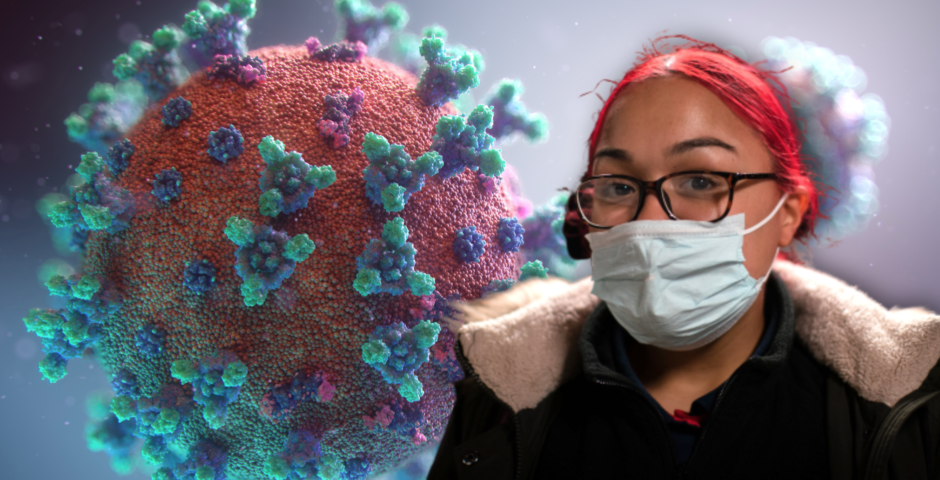
Loss of smell and taste, and five other symptoms people with coronavirus have reported
People have experienced mild symptoms from red eyes to an upset stomach
We’ve all heard the main symptoms to look out for when it comes to the coronavirus. The NHS advises that the two main ones to look out for are a fever and a cough, but with increasing reports that more and more people have had coronavirus but experienced vastly different symptoms, what exactly should we be looking out for? From red eyes to an upset stomach, there’s seemingly a lot more to the virus than the two main symptoms that are reported.
We’ve compiled a range of testimonials, from victims to healthcare professionals, to highlight some of the other symptoms that people have got from the COVID-19 virus. It’s worth remembering that some people show little to no symptoms. If you show any of the above symptoms, you should not call 111 unless your condition gets much worse or you don’t have anyone to help you. The NHS 111 online service is a great way to get an official and personalised idea of how severe your symptoms are and what to do next if you’re worried.
Loss of smell/taste
One of the main mild symptoms of coronavirus that has been reported is loss of smell and taste. According to TIME, “in South Korea, where testing for COVID-19 is widespread, some 30 per cent of patients with mild symptoms have reported anosmia, the technical term for a loss of sense of smell.”
Although this can also be a symptom of normal cold and flu, it usually isn’t accompanied by the hallmarks of a head cold, such as a blocked nose. ENT UK said in a statement: “We have also identified a new symptom (loss of sense of smell and taste) that may mean that people without other symptoms but with just the loss of this sense may have to self-isolate – again to reduce the spread of the virus.”
Ryan Van Waterschoot, a 28-year-old account manager, reported his first symptom as loss of smell and taste, and within days was hospitalised:
Fatigue
Both physical and mental fatigue have been reported as symptoms of the COVID-19 virus. Thea Jourdan, a 50-year-old mother, told The Daily Mail, “initially I felt exhausted, as if I was dragging myself through treacle and had no choice but to go to my bed. I had no meaningful cough and I wasn’t running a fever.”
Frankie Bugler, a 23-year-old, said in the same article that “around the same time I felt unusually tired, but put it down to the after-effects of running a half-marathon at the beginning of the month.”
This applies to mental fatigue too, with many victims suffering so much that they aren’t able to concentrate on small things like watching TV. Vice wrote that a particular victim, Yaqi, told them that she tried “to watch a current affairs program on her phone to distract herself, but at a certain point she could no longer recognise the speakers or comprehend what they were saying.”
Lack of appetite
A lack of appetite is a symptom, caused just as much on its own as by the vomiting that comes with some cases of COIVD-19. Blogger Stephen Power told The Mirror, “I’ve been in bed with a nasty fever, headache, mild cough & back pain for nearly four days now, I’m completely exhausted and have no urge to move or eat.”
Yaqi, a 37-year-old from Wuhan, couldn’t eat because she was throwing up so much, telling Vice, “I couldn’t eat anything. I threw up all the medicine that I ate and streaks of blood started to appear in my vomit. My husband was very troubled and went out, trying to find the most famous hospitals and doctors.”
Catherine Trodden, 33, told The Star “I couldn’t eat for five days. All my calories came from Lucozade and honey.”
Upset stomach
To accompany lack of appetite, some victims have also said they had an upset stomach, from cramps to diarrhoea – a recent study by the American Journal of Gastroenterology found that nearly half of COVID-19 sufferers from Hubei Province had also had an upset stomach. According to The Mirror, “they found that 48.5% of 204 people who have been infected by the coronavirus in China’s Hubei province had digestive symptoms such as diarrhoea.”
Catherine Trodden told The Star that “I was tired and sneezing and next day I had a runny nose and quite horribly upset stomach. On numerous occasions, I actually had to crawl to the bathroom.”
Stingy, red eyes
Chelseay Earnest, an employee of the Life Care Center in Washington, told CNN that “It’s something that I witnessed in all of them (the patients). They have, like … allergy eyes. The white part of the eye is not red. It’s more like they have red eye shadow on the outside of their eyes.”
Related stories recommended by this writer:
• PornHub Premium is being made free for a month to encourage you to stay home
• What is the coronavirus 5G conspiracy? The dumb theory circulating the internet rn
• Shaughna thinks she had coronavirus when she was on Love Island





















